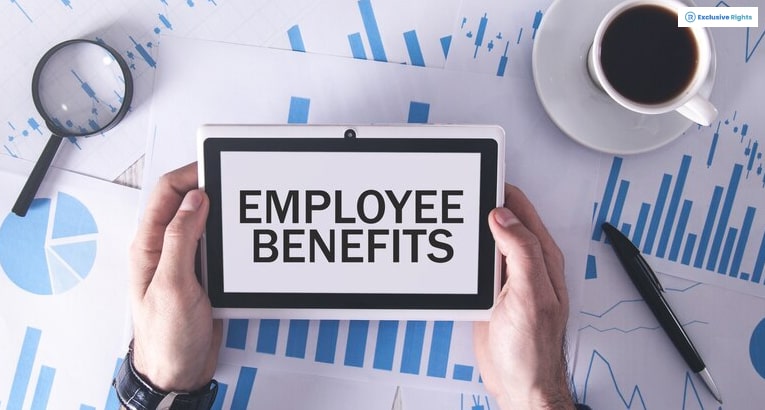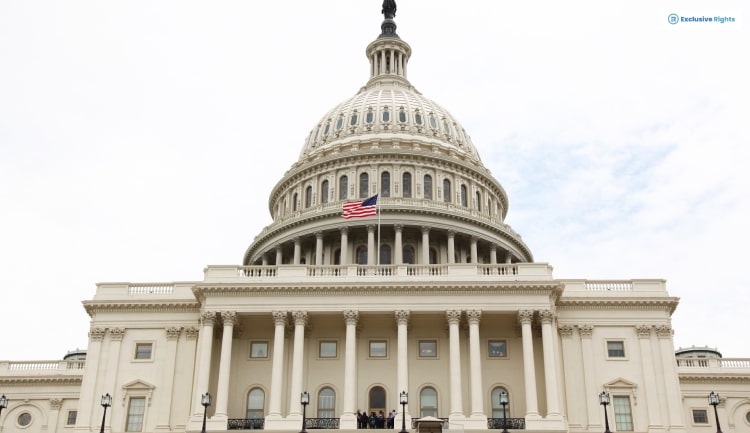
Table Of Contents
- What Are Employee Benefits?
- Which Answer Best Defines Employee Benefits?
- Where Can You See Employee Benefits?
- Employee Benefits Regulations Of USA
- What Federal Laws Govern these benefits?
- A. Employee Retirement Income Security Act.
- B. Family and Medical Leave Act.
- C. Social Security Act.
- D. Affordable Care Act.
- E. Consolidated Omnibus Budget Reconciliation Act.
- Compliance Considerations For Employers Regarding Employee Benefits
- Understanding Applicable Laws and Regulations
- Proper Plan Documentation and Disclosure
- Nondiscrimination Rules and Equal Treatment
- Timely Contributions and Remittances
- Proper Handling of Participant Data
- Regular Compliance Reviews and Audits
- Final Word
What Are Employee Benefits? What Do They Consist Of?
Picture this: You’re at a carnival, eagerly waiting to experience the thrilling rides, games, and delectable treats. But what if, amidst it all, you miss out on the coupons that you are to get at the end of each ride? These coupons guarantee you a free meal and a dessert of your choice! Shame, isn’t it? Now, think of this carnival as your job. The treats, rides, and excitement are your salary. Additionally, the coupon is your employee benefits. Therefore, Employee benefits are an extra feather on your cap. They are like the exclusive goodies that the employment laws and labor laws guarantee.
Employee benefits are like the hidden gems of the workplace. They offer a treasure trove of advantages. These benefits go beyond what comes with your paycheck.
Therefore, they are the perks that can show you how employment opportunities truly enrich your life. Thus, you might want to fasten your seatbelts. In this article, we will deal with the broad topic of employee benefits.
What Are Employee Benefits?

Employee benefit is that basket of easter eggs that bring multiple gifts into your professional life. We are calling them gifts because they bring us happiness.
Moreover, these benefits may come in the form of health insurance, retirement plans, and other incredible packages.
Which Answer Best Defines Employee Benefits?

Honestly, if we would attempt to define employee benefits, the legal way seems to be the best one.
In legal terms, employee benefits are various compensation that your employer gives you. These come as part and parcel of your employment agreement. If you have doubts about the terms and conditions of your agreement, try visiting a contract lawyer.
Therefore, an employee benefit can consist of advantages that your employer provides you. It is a part of your overall compensation package. Commonly, your employment benefit package may consist of the following.
a. Health insurance.
b. Paid time off.
c. Retirement plans,
d. Life insurance.
e. Disability coverage.
f. Additionally, other forms of financial and non-financial support.
Where Can You See Employee Benefits?

Apart from you enjoying these benefits, what other proof do you have? Yes, you do need to know the answer to this question. Remember, if your employer ever stops giving you these benefits, you can take them to court.
So, these benefits are clearly mentioned in your employment contract, employee handbook, or other official documentation.
Additionally, your employer abides by specific legal regulations and requirements when giving you these benefits. Be it state laws, federal regulations or employment laws, your employer has to abide by the terms.
Moreover, the development of employee benefits happened over time. The main objective behind them was the well-being and job satisfaction of employees.
Statistics and data show that employees with a fair salary and additional perks tend to perform better. Additionally, these benefits also help an employee remain loyal to the employer and organization.
Employee Benefits Regulations Of USA
You deserve the benefits that you get. Don’t ever let your employer tell you otherwise! The United States is a land of equal and fair opportunities. There are various federal and state laws that regulate how employee benefits function. These laws ensure that employees get the benefits that they truly deserve. Additionally, they offer various protections to employees in case these rights suffer violations.
What Federal Laws Govern these benefits?

It is only fair that we remember the Constitution first. The constitution of the United States makes the base for these Federal laws.
Moreover, it is the supreme law of the land that guarantees the rights and benefits to each citizen, including employees of the United States. The federal and state laws that we mention here function under the powers of the Constitution. Now, let’s check them out!
A. Employee Retirement Income Security Act.
ERISA is a federal law that takes care of the private employment sector. It talks about employee benefit plans for private employees. These benefits include retirement plans and health insurance. Moreover, it establishes minimum standards for the following.
a. Plan participation.
b. Funding.
c. Vesting.
B. Family and Medical Leave Act.
FMLA is another important federal law that deals with employee benefits. It allows eligible employees the benefit of unpaid, job-protected leaves. Additionally, these leaves come with certain conditions.
For example,
a. Specific family or medical reasons,
b. Childbirth or adoption
c. Lastly, serious health conditions.
C. Social Security Act.
The Social Security Act provides employee benefits to retired and disabled workers. Moreover, evem their dependents get benefits under this Act.
Therefore, this Act is a very important federal program that protects the social insurance benefits of an employee.
D. Affordable Care Act.
The ACA, which we popularly know as Obamacare, is a part of employee benefit programs. It has certain terms that ask certain employers to give employees affordable health insurance options. Moreover, this program benefits not only employees but also their dependents.
E. Consolidated Omnibus Budget Reconciliation Act.
The COBRA is a very special federal employee benefits program. It provides employees and their families with health insurance coverage. Additionally, this program is one of a kind. It covers employees even after a job loss or certain unfortunate life events.
Compliance Considerations For Employers Regarding Employee Benefits
As an enterprise, it’s crucial to navigate the complicated landscape of worker benefits even as ensuring compliance with numerous laws and guidelines. This article will discover the important compliance issues employers should maintain in mind whilst imparting benefits to their personnel.
Understanding Applicable Laws and Regulations
The first step in ensuring compliance is to get yourself up to speed with the applicable legal guidelines and regulations that govern worker blessings. These include, but aren’t confined to, the Employee Retirement Income Security Act (ERISA), the Affordable Care Act (ACA), the Health Insurance Portability and Accountability Act (HIPAA), and the Internal Revenue Code (IRC). By staying knowledgeable about those laws and their requirements, employers can keep away from expensive consequences and legal issues.
Proper Plan Documentation and Disclosure
Employers must hold accurate and updated plan documentation for each advantage supplied to personnel. This consists of summary plan descriptions (SPDs), plan files, and any amendments or changes made to the plans. Timely disclosure of those files to personnel is also crucial to comply with ERISA’s reporting and disclosure requirements.
Nondiscrimination Rules and Equal Treatment
Employers need to make certain that their advantage plans do not discriminate towards personnel based on factors together with age, race, gender, or health popularity. The ACA and HIPAA have particular nondiscrimination regulations that restrict employers from denying insurance or charging higher charges based totally on those factors. Additionally, employers need to treat all further located personnel similarly in relation to eligibility and advantages.
Timely Contributions and Remittances
For plans that contain worker contributions, together with 401(okay) plans or health financial savings money owed (HSAs), employers have to make sure that those contributions are remitted to the plan in a timely manner. Failure to do so can result in penalties and potential fiduciary liability below ERISA.
Proper Handling of Participant Data
Employers ought to defend the privacy and protection of employee information associated with their blessings. This consists of complying with HIPAA’s privateness and protection guidelines for fitness plans and ensuring that other personal data, together with Social Security numbers and financial statistics, is stored stable.
Regular Compliance Reviews and Audits
To maintain ongoing compliance, employers should conduct everyday evaluations of their advantage plans and processes. This can also consist of inner audits or engaging with third-party compliance specialists to become aware of any ability troubles or regions for improvement. By proactively addressing compliance issues, employers can minimize the hazard of consequences and make certain that their advantage plans are working correctly.
Further, compliance with worker benefits legal guidelines and guidelines is critical for employers to avoid legal troubles, penalties, and potential fiduciary legal responsibility. By knowing relevant laws, keeping proper documentation, ensuring nondiscrimination and identical remedy, timely contributions, and steady information handling, employers can navigate the complex international of employee advantages while prioritizing compliance.
Final Word
Now that we have reached the end of this article let us go over a few things. There are state provisions that also guarantee the workings of employment benefits. For example, there are minimum wage laws.
Furthermore, although they are not an exact part of employee benefits, they do guarantee the well-being of employees
Additionally, state laws call for family and medical leave laws. These laws are wide in their scope. Hence, they may provide additional benefits that go beyond the purview of the FMLA.
Lastly, if you are facing problems related to employee benefits, you can visit a good employment lawyer. Therefore, they will provide you with a concise idea of your rights under the employment laws of the land.
Read also:









